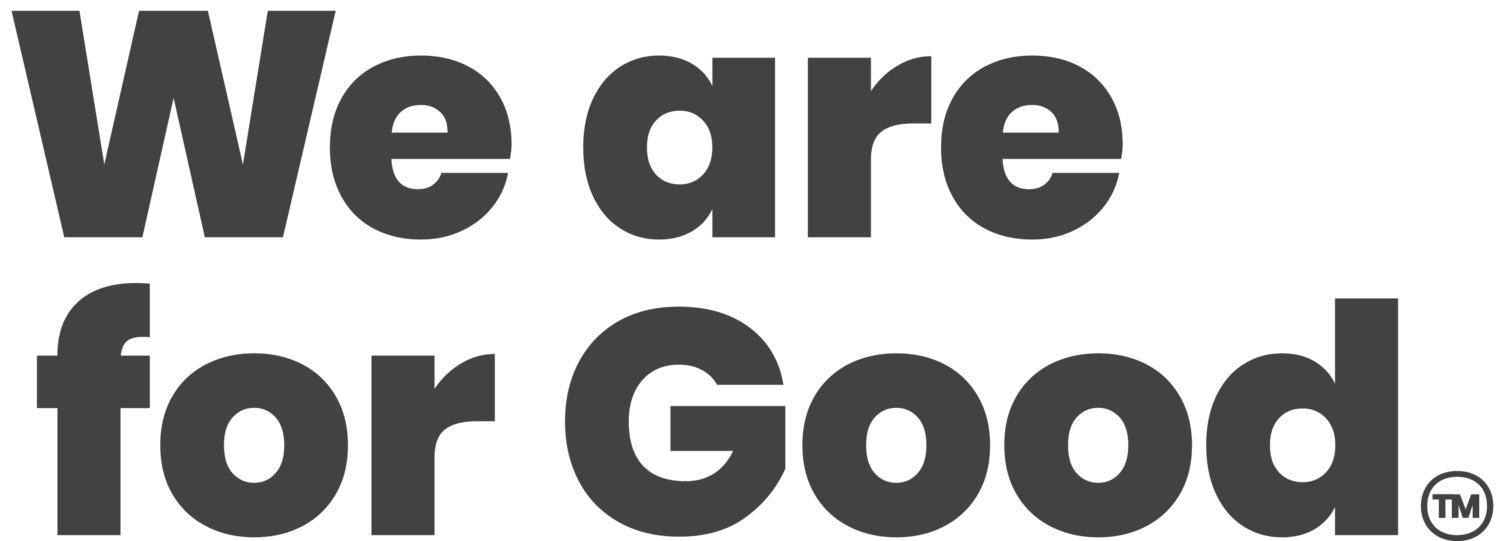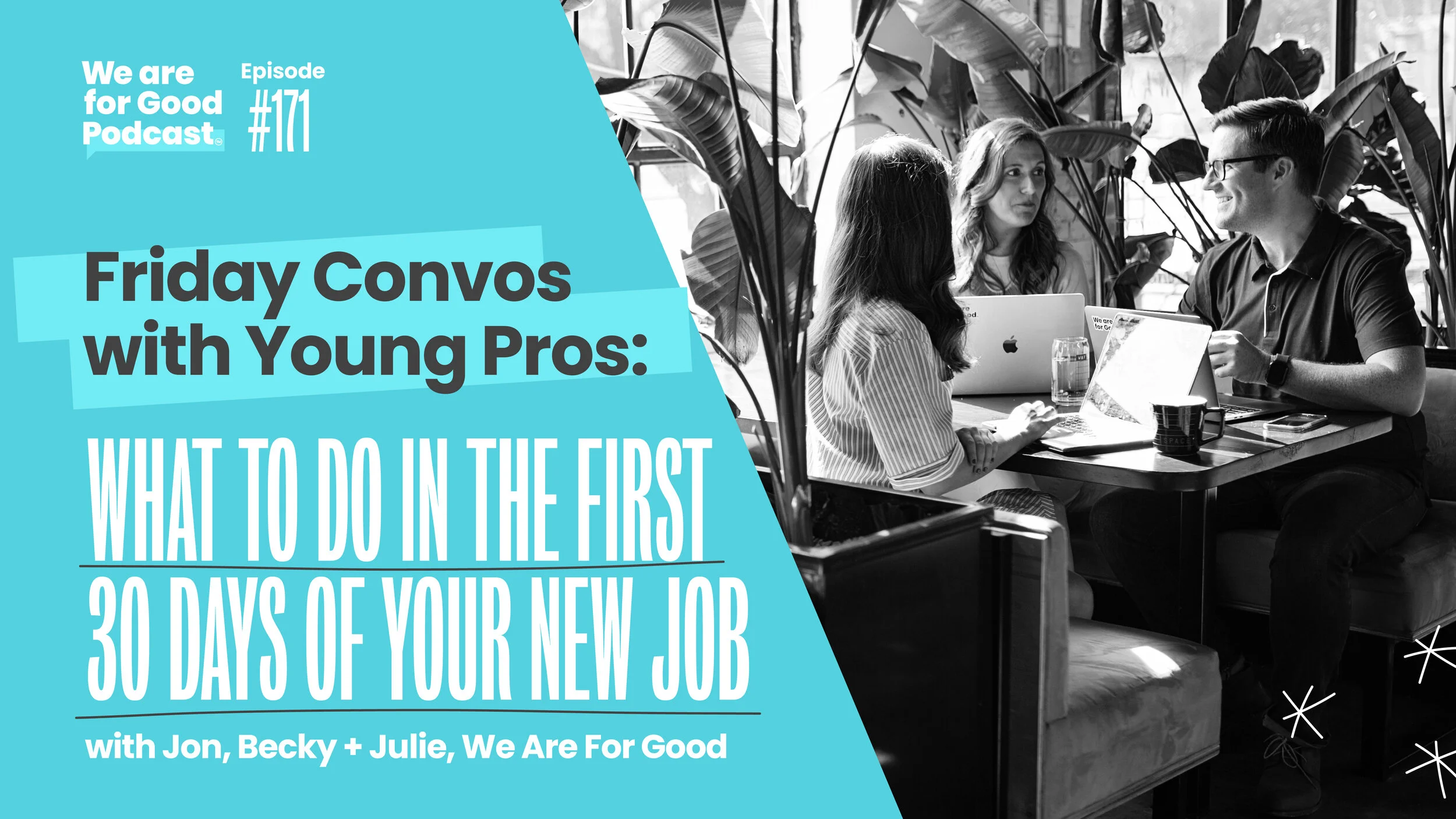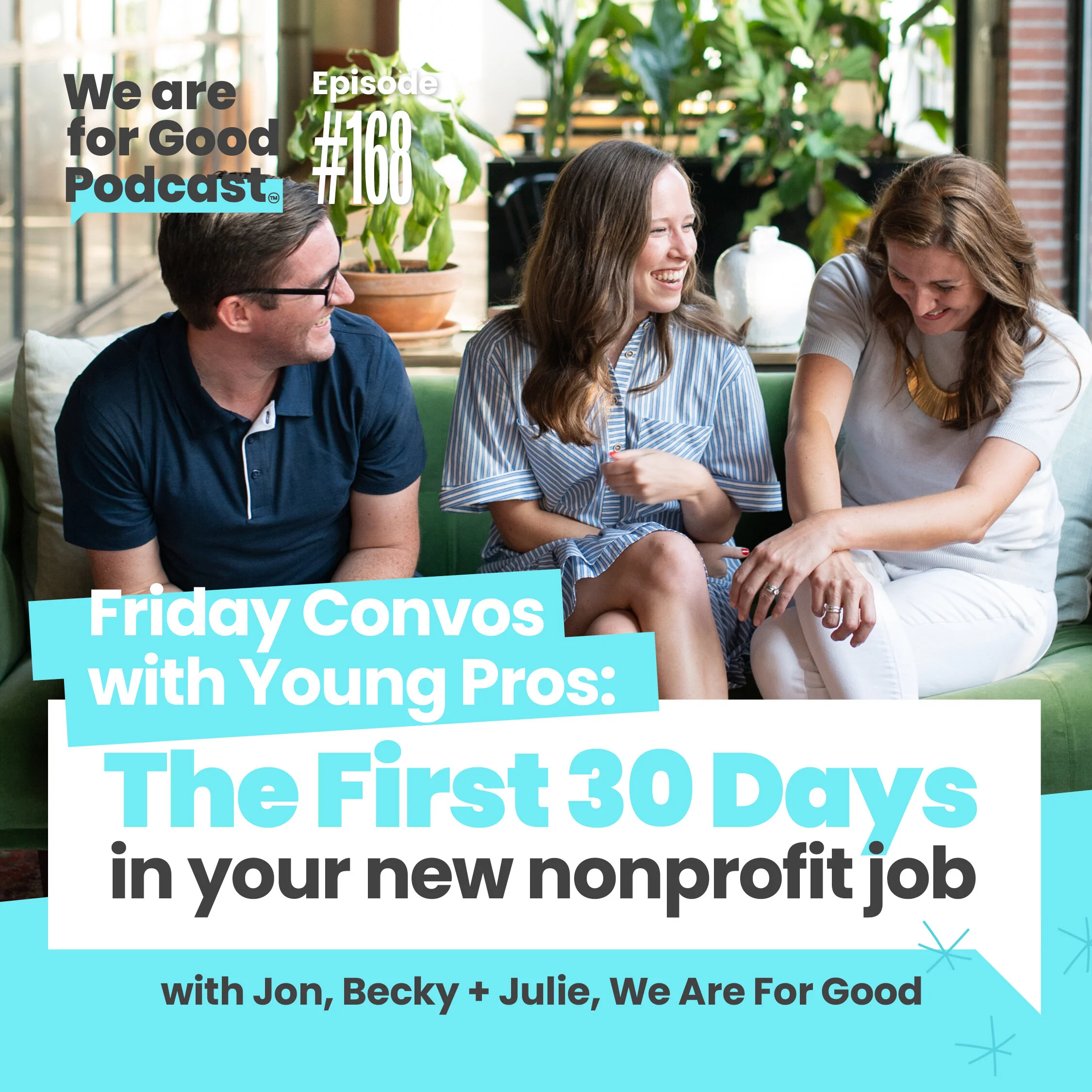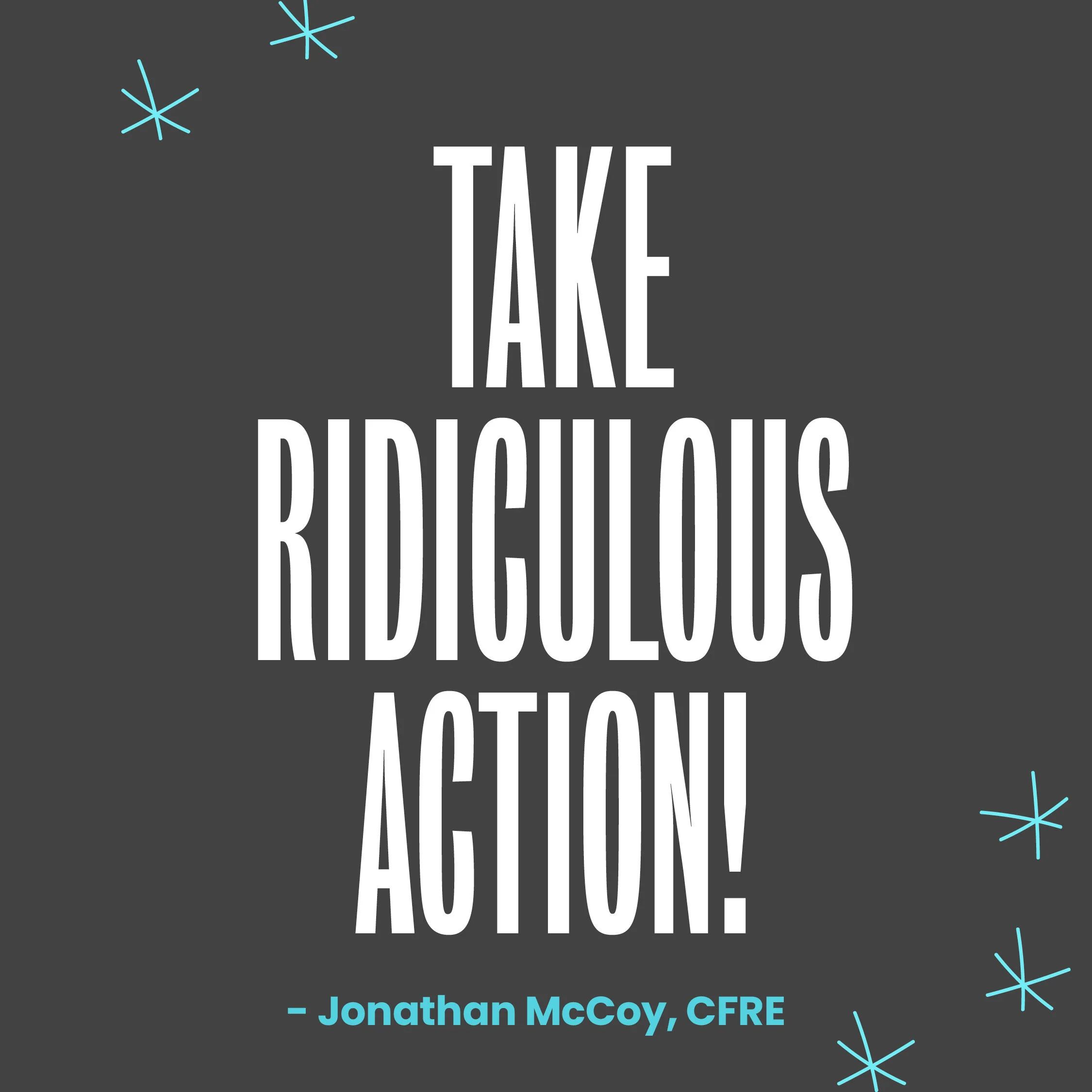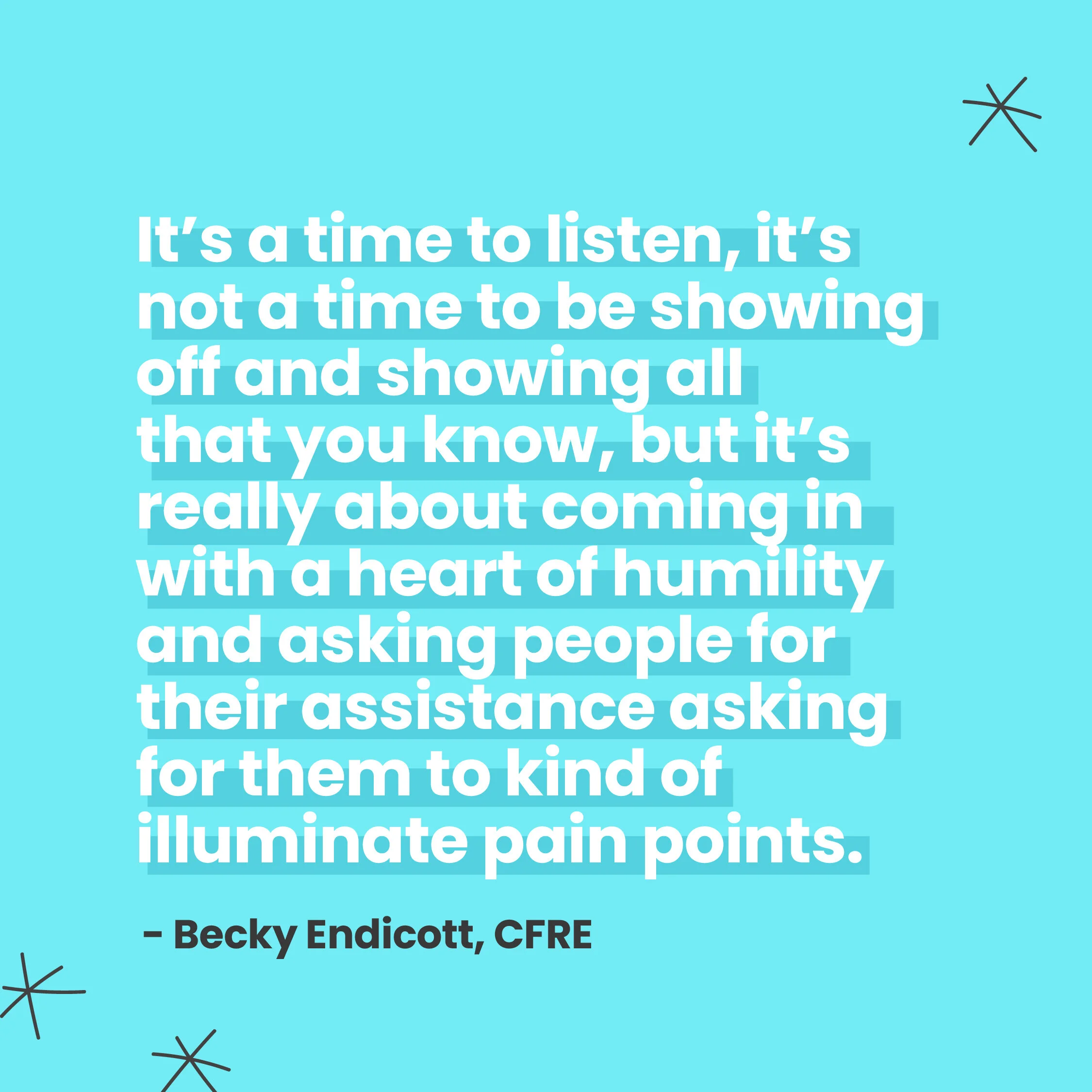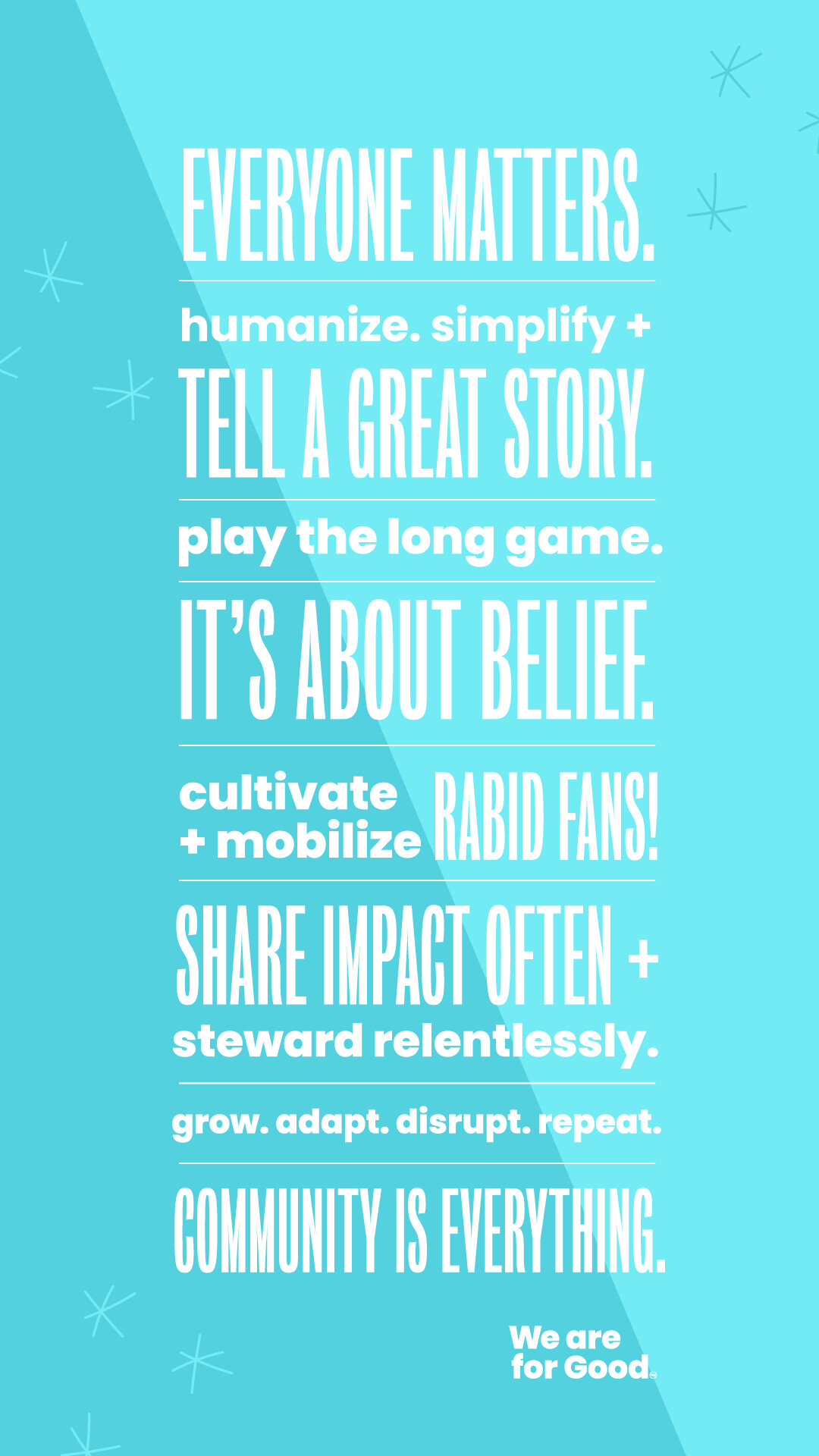171. Friday Convos with Young Pros: What To Do In The First 30 Days of Your New Job - Jonathan McCoy, CFRE, Becky Endicott, CFRE, and Julie Confer
Listen to this episode
Overview
We heard plenty of feedback that you liked our new series Friday Convos with Young Professionals, so we're excited to dive into what happens after you've landed the job. It's week two, and we're chatting about What to Do in the First 30 Days on the Job. We're walking through how to connect with volunteers, integrate with the team and instilling habits into your work. So fun having this "do as I say, not as I did" conversation we wished we would've known 20 years ago. 🎧
“I think it’s really important to realize you want to come in as an asset to the team.”
Episode Transcript
Download Full Episode Transcript Here
Episode Overview
What to do in the first 30 days of your new job (2:00)
Things you should do (4:00)
Things to communicate with your manager (12:00)
What to do to get to know your team (19:20)
Habits to instill in your first 30 days (27:00)
Powerful quotes
“I think one of the great cuss words of nonprofit is onboarding.” -Becky
“I think that there is a ton of imposter syndrome when you come into a new job. And you don't know the organization, you don't know the players. And it's like, this is your time to not necessarily be a wallflower. But it's a time to listen, it's not a time to be showing off and showing all that you know, but it's really about coming in with a heart of humility and asking people for their assistance asking for them to kind of illuminate pain points.” -Becky
“Just know that you can do this scared because I had so much imposter syndrome didn't know what I was doing. So all these things that we're talking about today, they may seem intimidating, but just show up and do it scared and it will pay off.” -Julie
“I think it's really important to realize you want to come in as an asset to the team.” -Jon
“What are the things that value, you know, in the organization that our team is really focused on? How can you go back into your quiet corner, and like take ridiculous action and do some work to show some progress, because everybody's going to respect the fact that you're getting in there and doing that.” -Jon
“The thing is, you want to leave your job better than you found it, and you can't do that if you don't take the time to figure out what is going on around you.” -Julie
“One of the most important things you can do is figure out how to get work done. I feel like that's really what we all learn in our first job.” -Jon
“There's a sense of setting your boundaries early is really going to be helpful.” -Becky
“We're gonna say relationship building is the most important part of your job. And so talking to your manager about that you want to shadow with them going to meetings getting to meet influential people in your organization, or around your organization.” -Jon
“Reflect on your onboarding experience, whether great or bad, and then help set your teammates up for success around you.” -Julie
Things you should do:
Travel with a notebook wherever you go.
Take notes
Write down names and titles to refer back to later
Write down your questions
Jot down words/acronyms you don’t understand
Ask your manager great questions, but don’t loiter
Where should I place my energy over the next 60-90 days?
What are your main priorities this fiscal year?
Who should I meet with outside this dept?
Help me understand the politics and key players?
Volunteer to help, partner, lead, listen - just to get out there and gain experience
Find something that can be an early win. To show you are not afraid to take action. Do the work.
Manage your expectations
Nonprofit work requires juggling many balls and wearing many hats, but the reward is excellent too.
Variety of work is a plus!
Commit to immersing yourself in learning
Get to know the history of your organization
Read last 2-3 years worth of newsletters/magazines/annual reports
Read available strategic plans or development plans
Focus on observing
Always feel empowered to speak up and give input, but there is power in listening, learning office dynamics, and observing.
Build community outside of the workplace
Join organizations, local alum groups, volunteer, and get involved to be sure you are building a community outside of work too
Starting a new job can be overwhelming, community is important to help you feel supported through that transition
What to communicate with your manager:
Determine the best way your manager likes to be communicated with
Establish your priorities
Your job description, long-term projects, and performance measurements may be making you feel overwhelmed.
Work with your manager, or on your own, reflect on your key priorities. This will help you focus and get to work!
Learn the chain of command
Shadow them to meetings
Determine this position’s pain points
What to do with your team:
Get to know each person and their work one-by-one
Share this as a goal with your boss
Make sure you’re asking about the personal side: family, hobbies, personal passions, dogs
Embrace Social hour
Do not eat at your desk.
Get to know your co-workers
Set up time to meet with each member of your team. Learn their role, their passions, and about their lives.
Do this right when you start your job, because after time goes on you will get comfortable and not do it!
Focus on building trust
When you say you are going to do something, do it. Anticipate office needs before someone asks you to do it, take initiative, get to know your team, and focus on building trust. This will be so important to your long-term success!
Stay out of office drama, gossip, etc.
How to connect with Donors / volunteers / internal stakeholders
Onboarding relationships in partnership with your manager
Make a list of internal and external audiences
List of 2-3 beloved volunteers
Meet a beneficiary / someone who has been impacted by org
List of 2-3 beloved internal champions / beloved employees
List of 2-3 passionate donors
Now go meet them and hear their story
Download Kivi Leroux Miller’s Guide mentioned by Jon in today’s episode here:
The First 100 Days of Your New Nonprofit Marketing Job by the Nonprofit Marketing Guide
NEW: Young Professional Workshop Series Inside PRO! 🎉
Once a month, we will be dropping a PRO workshop curated specifically with young professionals in mind. We’ll dive into discovering your personal values, leveraging your leadership style, negotiation, conflict management, finding a mentor, building a network, mental health and more! Join a community of like minded professionals all just trying to figure it all out together!
Sign up today to never miss a workshop!
